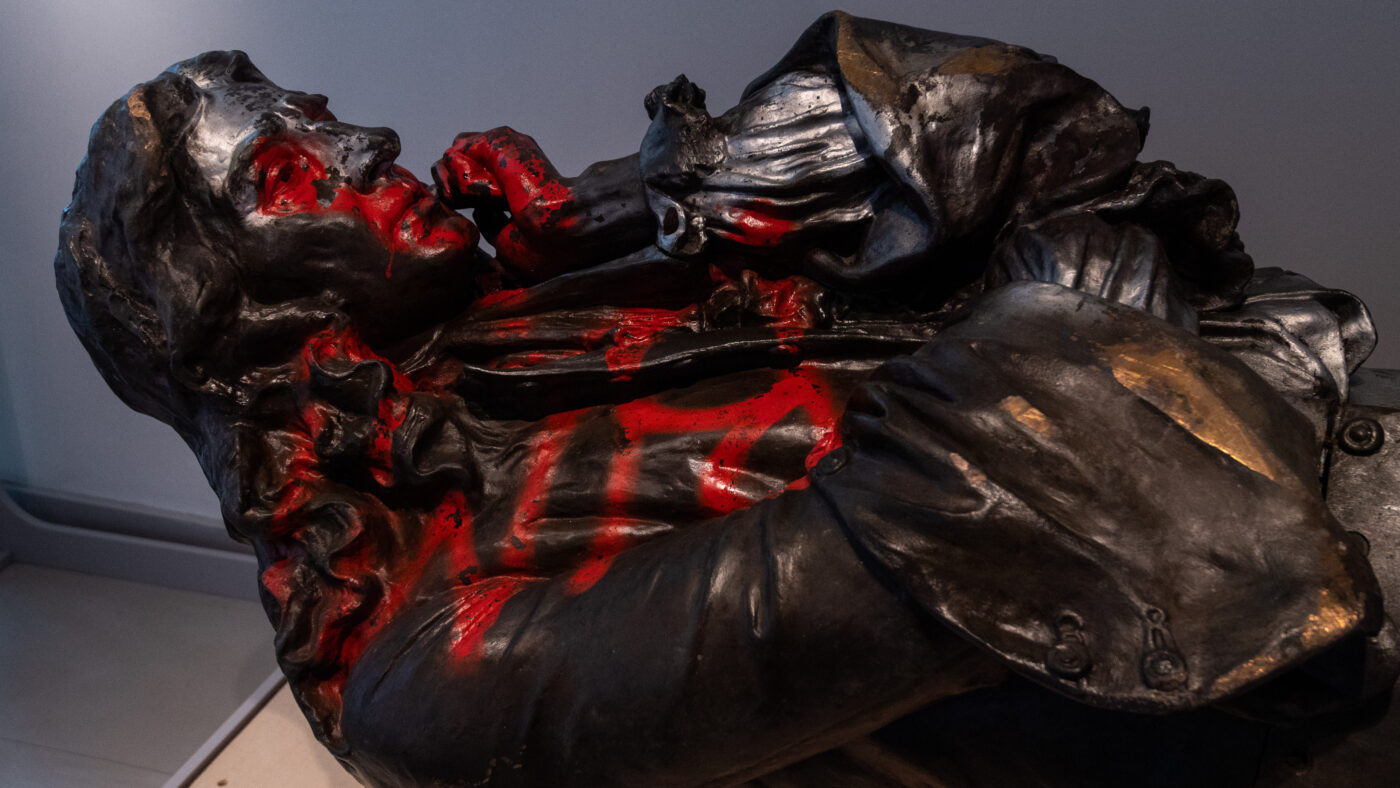‘Art Museums are waging a woke war on the past’, reads a recent article for Spiked Online. Meanwhile, a short scroll further and my Twitter feed is abuzz as political commentators exchange virtual blows over the upcoming council elections of the National Trust. ‘The National Trust has become the latest toy for populist charlatans to play with now that they don’t want to talk about Brexit. Farage and his right wing rag cheerleaders are the ones that need a good knocking’, writes Alastair Campbell. It can seem, at first glance, that debates over our past and our cultural institutions remain shrill.
But it is possible to have a more constructive conversation about how we tell the story of our past to the diverse audiences of today’s Britain without descending into a polarised ‘culture war’.
While 2020 marked a year of feisty skirmishes across left and right, clashing over themes from Edward Colston to the curriculum, 2023 has in many ways embodied how efforts to tell a broader account of our history do not always need to be so fiercely contested. We have seen this with the major 75th anniversaries of the arrival of the Empire Windrush and of the NHS, both marking the contribution of migrants helping to build the society we share today. Events have been held around the country to commemorate these landmark moments, involving everyone from King Charles commissioning the portraits of Windrush pioneers, to the BBC hosting a ‘Repair Shop’ Windrush special. There has been an appetite to mark these occasions across the political spectrum, and to tell a more inclusive story of who we are today and how we got here.
Meanwhile even on the sharper edges of our history, such as around the Empire and transatlantic slavery, it can be possible to put down our weapons and have a more cool-headed debate about how to acknowledge the contentious legacies of Britain’s history. Indeed, a new report by British Future looks at how arts and culture institutions can help to be peacemakers in this effort.
One key step forward is for both sides to recognise that the answer is more history, not less.
Directors interviewed for our research noted how much-used labels such as decolonisation can sometimes be misconstrued by the public as implying that telling an inclusive account of our history requires taking away part of the story. Meanwhile, critics have often been too hasty to accuse museums of airbrushing or rewriting the past. In reality, British Future’s research into arts and heritage organisations around the UK demonstrates that the vast majority of initiatives underway are about adding in a wider variety of perspectives and interpretations to the debate, reflecting on emerging evidence, and opening up public dialogue about historic injustice. The new Black Atlantic exhibition at the Fitzwilliam Museum in Cambridge, for instance, explores the institution’s links to historic slavery, positioning artefacts adjacent to and in conversation with new contemporary works by diverse artists, ‘to make connections across time to the present moment.’
Where there are calls for statues and other artefacts to be relocated or repatriated, these discussions also do not need to be nearly so fraught as some would have us believe. Take the Edward Colston statue, for example – which, when toppled, sparked perhaps the most high-profile debate of the past three years about how we commemorate the past. A quieter success story has since taken place through the We Are Bristol history commission, where residents of all backgrounds in the city were invited to a consultation on what to do with the monument. The result, with 14,000 responses, found a surprising consensus: 74% voted to move it to a museum, and 65% supported a proposal to add a reinterpretation plaque at its former plinth.
This points to a need for ‘culture warriors’ of all political persuasions to take pause and think about where the public sit in these nuanced and complex debates. A better evidence base, through attitudes polling and local consultations, can improve our understanding of how people from ethnic, faith and social minority groups want their histories to be told. That can help illuminate overlooked areas of common ground, where there is more agreement than both sides of the debate had realised.
As one director noted in an interview for our report, galleries and museums are ‘among the few free civic spaces where generations with different views on our past come together’, endowing them with the reach and potential to bridge polarised debates about our past. The challenge now for cultural institutions is to find more ways of engaging the public that can bring all sides to the table, to discuss who we are and how we got here in modern, multi-ethnic Britain.
Interpretations of the past are always evolving, to reflect new evidence and shifting social values. But those on all sides of the culture war can see that, as a country, in recent years we’ve been more divided than we’d like. A little less shouting on Twitter and a little more dialogue might help us to find that there is more appetite for a fuller account of our past than initially meets the eye.
Click here to subscribe to our daily briefing – the best pieces from CapX and across the web.
CapX depends on the generosity of its readers. If you value what we do, please consider making a donation.


